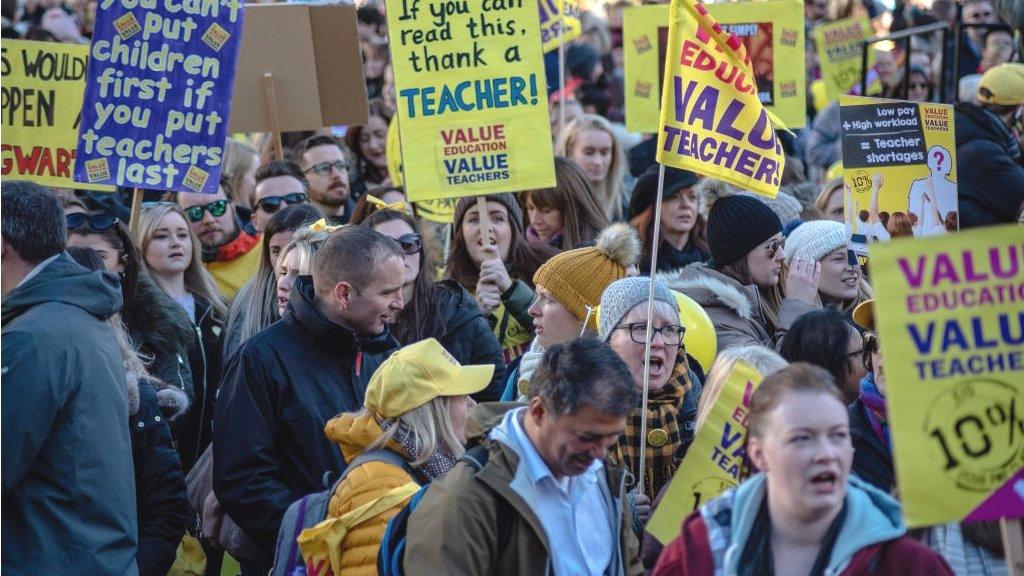Teachers' strikes: Why will some students be in classes and others not?
- Published
- comments
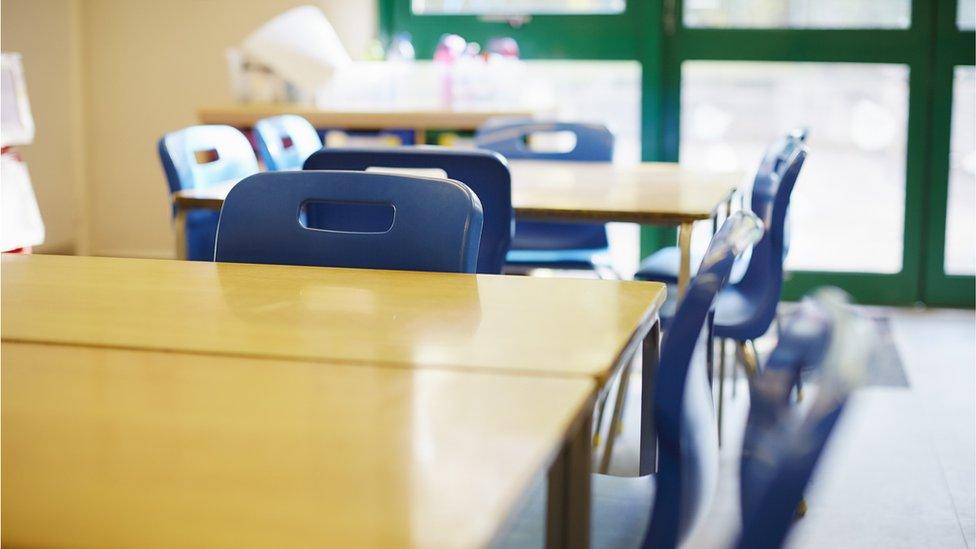
How will your school be affected by the school strikes?
Thousands of teachers in England and Wales are set to go on strike on Wednesday, meaning some schools may be closed.
Teachers who are members of the National Education Union (NEU), which is the biggest education union in the UK, voted to take industrial action because they believe they are being underpaid.
The NEU says around 23,000 schools in England and Wales could be affected by Wednesday's strikes.
We want to hear how the school strikes this week are affecting you. Will you be going to school or not? Will you be learning from home, having no school at all, or taking part in a holiday club for the day?
Let us know what you'll be up to in the comments below.
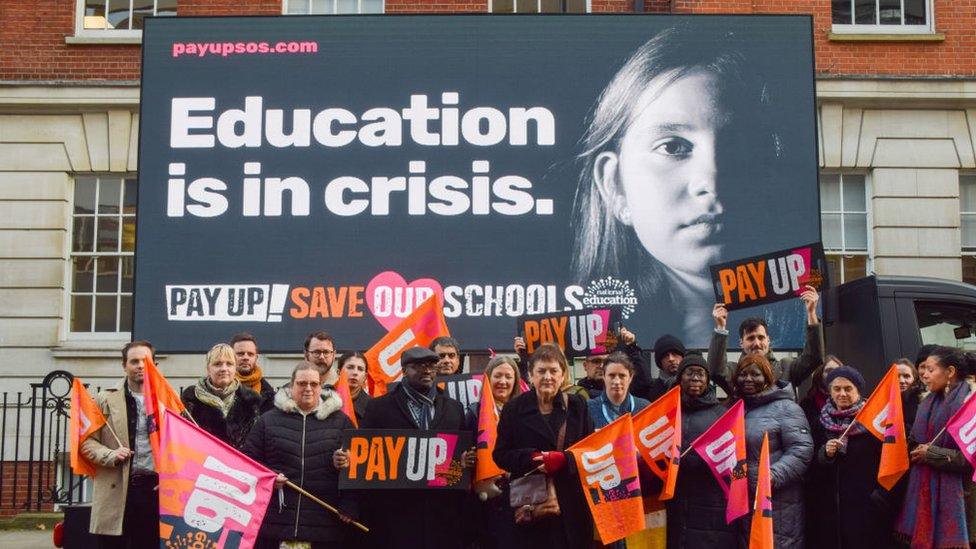
Members of the National Education Union (NEU) are gearing up to strike on 1 February
Wednesday will be the first day of seven planned strikes which are scheduled to take place in February and March.
The Education Secretary Gillian Keegan met with with union leaders on Monday in an attempt by the government to stop the strike action going ahead. However, they failed to reach an agreement which means the school strikes will take place.
Why will some classes be in school and some not?
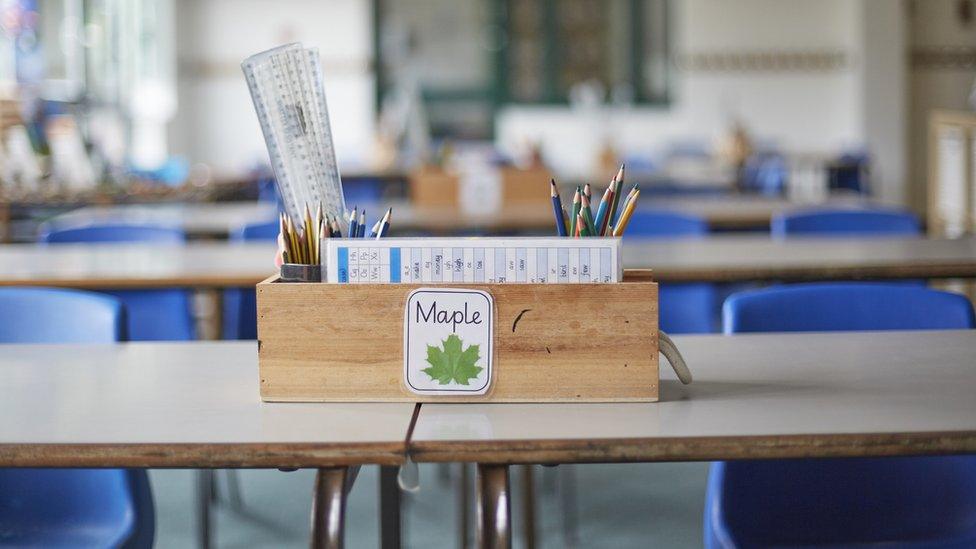
Some schools are likely to close because of the strikes, while others may join classes together or use different teachers for lessons
The strikes on Wednesday will affect children in England and Wales in different ways, depending on how many teachers at their schools are taking part.
The day will run as usual for some schools if no or very few teachers are striking, but there are likely to be some big changes for others.
The government has advised head teachers and school leaders to "take all reasonable steps to keep the school open for as many pupils as possible" where they can.
This means some classes may be taught by different members of staff, or classes may be joined together.

The government has advised schools to make use of online learning where they can on strike days
If lots of staff at a school are taking part in the strike action, the school may have to either limit the number of pupils who can come in, or they may choose to shut for the day.
The government has said if schools do need to restrict the number of students that can attend in person, then priority should be given to pupils in certain groups including vulnerable children, children with upcoming exams or formal assessments and children of critical workers, for example students with parents who work in healthcare, education or transport.
The government has also advised that where possible, schools should try and provide remote learning for students if they aren't able to physically go to school on strike days.
If you aren't sure whether you should or shouldn't be going to school on Wednesday 1 February, make sure to get your parent or guardian to contact your school to find out what's going on.
Why are the strikes happening?
Teachers Strike: Pupils quiz their teacher about why she's going on strike
Teachers in England and Wales are taking action over the amount of money they're currently paid to do their job.
"We're talking about the decline in teachers' pay. We think that's really having an effect on teacher recruitment and keeping teachers in the profession," said NEU general secretary Kevin Courtney.
What has the government said about the strikes?
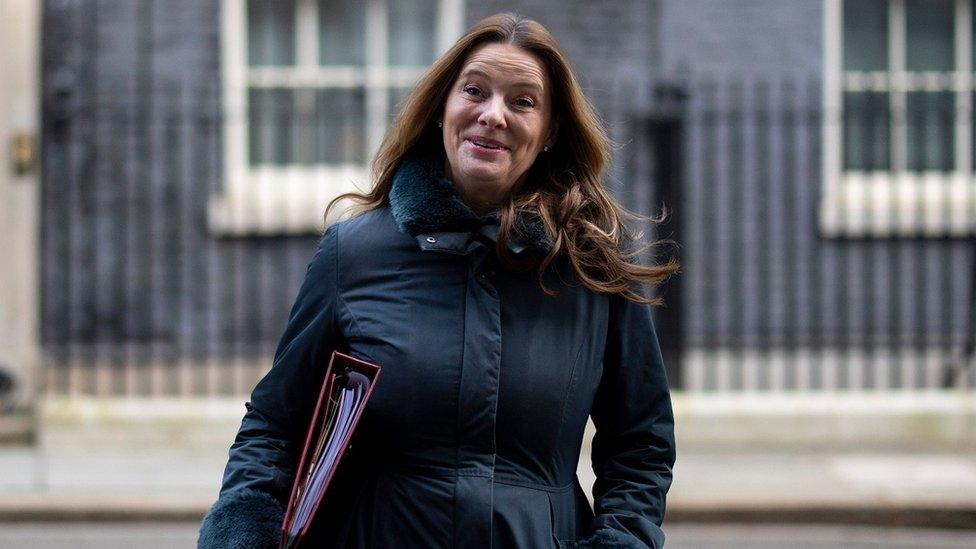
The government's education secretary Gillian Keegan met with the NEU on Monday afternoon
The government's education secretary Gillian Keegan said it was "hugely disappointing" to know the strikes are going ahead following talks with the NEU.
"These strikes will have a significant impact on children's education, especially following the disruption of the past two years, and are creating huge uncertainly for parents," she said.
"I will continue doing everything possible to protect children's education."
The Welsh government has said it is unable to offer a bigger pay option, but Education Minister Jeremy Miles said he was "absolutely committed " to working with the unions to find a resolution to the dispute.
A Welsh Government spokesperson said: "We understand and respect the feelings expressed by teaching and head unions. We are committed to continue to meet with unions to discuss these issues.
"It will be for individual schools with local authorities to plan and implement measures that minimise the impact on pupils learning."
What about the rest of the UK?
These pupils have their say on the Scottish teacher strikes
Teachers in Scotland went on strike earlier this month over pay. Strikes also took place in the country at the end of last year.
Talks between the Educational Institute of Scotland (EIS), which is Scotland's largest teaching union, and other unions, councils and the Scottish government did take place following the initial strikes.
However, more strike action is set to take place over the next few months in Scotland, which includes two days of national strike action in all schools on 28 February and 1 March.
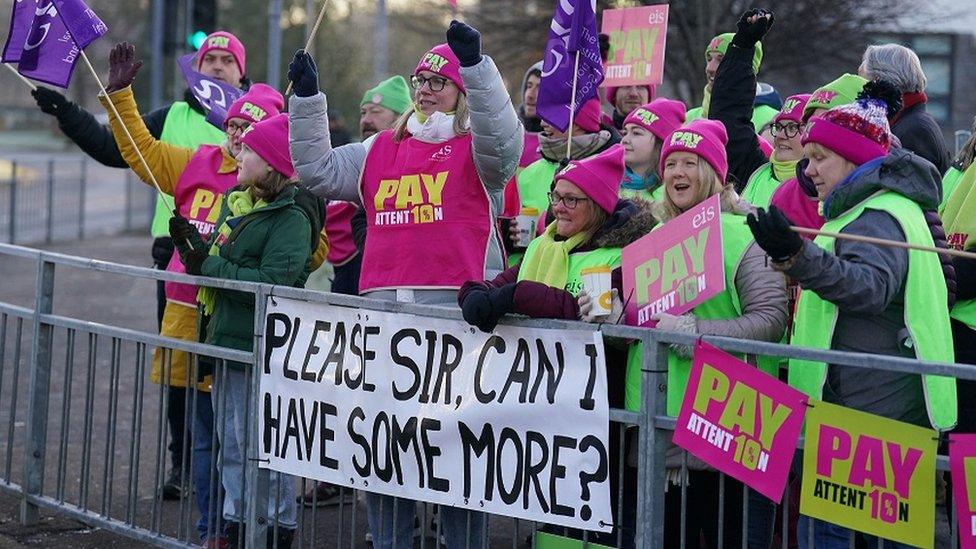
There have already been several teachers' strikes in Scotland
The majority of teachers in Northern Ireland are set to strike for half a day on Tuesday 21 February and this strike action is also over pay.
Three of the biggest teachers' unions in the country are planning to take action from midnight until 12pm the following day.
- Published23 January 2023
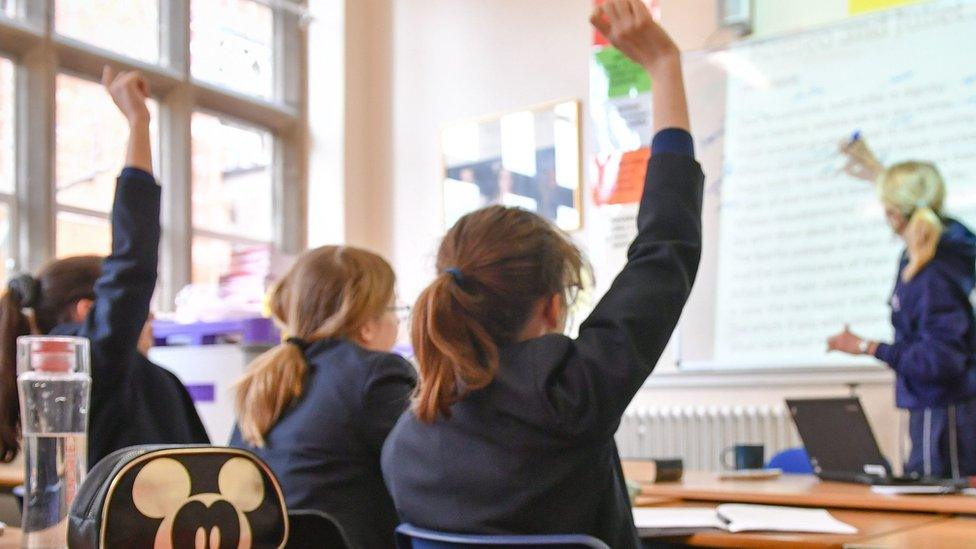
- Published26 August 2022
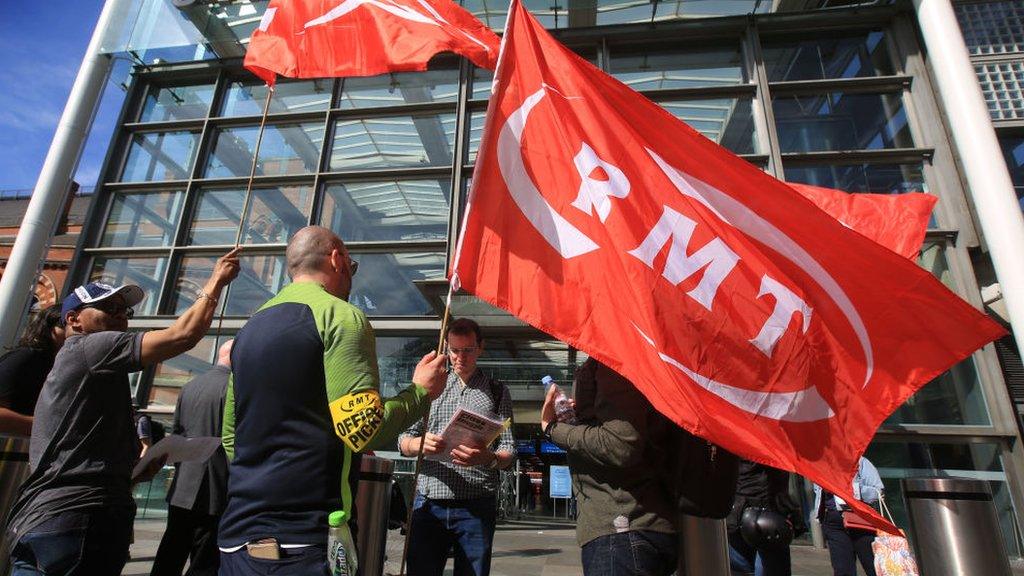
- Published11 January 2023
